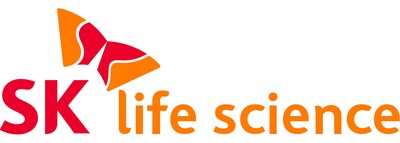PARAMUS, N.J., Dec. 8, 2024 /PRNewswire/ -- SK Life Science, Inc., a global leader in treatments for central nervous system (CNS) disorders and a subsidiary of SK Biopharmaceuticals Co., Ltd., presented data at the American Epilepsy Society (AES) Annual Meeting, showcasing its antiseizure medication XCOPRI® (cenobamate tablets) CV. Key data offered a better understanding of cenobamate’s unique dual mechanism of action (MOA) that enhances GABAergic inhibition at the type A γ-aminobutyric acid (GABAA) ion channel and reduces neuronal excitability by preferentially inhibiting the persistent sodium current.
“We are a company dedicated to advancing treatment options for epilepsy, supporting the epilepsy community and providing meaningful solutions for patients and their families,” said Louis Ferrari, BS, RPh, MBA, vice president, Medical Affairs at SK Life Science. “It is critically important for patients with epilepsy to achieve seizure control as early as possible. The data we presented at AES offer new insights into our drug’s unique dual MOA and highlight the potential for flexible and individualized dosing with cenobamate which, along with adjustment of concomitant ASMs to improve tolerability, may help more patients achieve optimal seizure reduction. Additionally, our data provided objective evidence of our treatment’s effect on patterns of electrical activity in the brain and seizure reduction.”
Clarification of the MOA of cenobamate
Deeper understanding of cenobamate’s bi-modal mechanism of action further elucidates its dual role on voltage-gated sodium channels and GABAA receptors. Specifically, in preclinical studies, researchers observed cenobamate’s selectivity for blockade of persistent sodium currents (INaP), while sparing the transient sodium current (INaT). The effect of cenobamate’s selective INaP block on the resting membrane potential is augmented by its positive allosteric modulation of GABAA receptor-mediated tonic currents. Cenobamate’s selectivity for the INaP over the INaT likely represents action on the NaV1.6 channel over the NaV1.1 channel, a feature not seen with traditional ASMs, like phenytoin or carbamazepine.
Potential for flexible and individualized dosing
New data examining the initial doses of cenobamate that were associated with seizure freedom in the phase 3 open-label efficacy subset showed the initial seizure freedom interval occurred at a wide range of cenobamate doses, with some patients requiring higher doses. These data highlight the potential for flexible and individualized dosing with cenobamate which, along with adjustment of concomitant antiseizure medication to improve tolerability, may help more patients achieve optimal seizure reduction.
The effect of cenobamate on responsive neurostimulation epileptiform events
A retrospective, multicenter, observational, 24-week study among 37 patients with uncontrolled seizures, showed a significant reduction in epileptiform events along with a significant reduction in clinically reported seizures during adjunctive cenobamate treatment. Results from this analysis demonstrate, through electrocorticographic data and observation of clinical seizures, the effectiveness of cenobamate in the treatment of focal seizures.
The complete list of SK Life Science abstracts presented at AES can be found here.
About SK Life Science, Inc. and SK Biopharmaceuticals Co., Ltd.
SK Life Science, Inc., with headquarters in Paramus, New Jersey, is a U.S. subsidiary of SK Biopharmaceuticals Co., Ltd., a pioneering South Korean company in drug development and commercialization. Together, they are advancing innovative treatments for central nervous system (CNS) disorders and oncology, with eight compounds currently in development. SK Life Science and SK Biopharmaceuticals are committed to addressing critical unmet medical needs for patients with conditions such as epilepsy, sleep disorders, neuropathic pain, Alzheimer’s disease, and schizophrenia. For more information, visit www.SKLifeScienceInc.com.
SK Biopharmaceuticals Co., Ltd. is part of SK Group, South Korea’s second-largest conglomerate. SK Group is a collection of global industry-leading companies driving innovations in energy, advanced materials, biopharmaceuticals and digital business. For more information about SK Biopharmaceuticals, visit www.skbp.com/eng.
About XCOPRI® (cenobamate tablets) CV
Cenobamate is an antiseizure medication (ASM) discovered and developed by SK Biopharmaceuticals and SK Life Science. Cenobamate reduces neuronal excitability through a unique dual mechanism of action, preferentially inhibiting the persistent sodium current and enhancing GABAergic inhibition at the type A γ-aminobutyric acid (GABAA) ion channel. The precise mechanism by which Cenobamate exerts its therapeutic effect is unknown.Cenobamate is marketed under the brand name XCOPRI® in the U.S. by SK Life Science, Inc. Additionally, XCOPRI is commercialized in Canada and Israel by SK Biopharmaceuticals’ partners, Paladin Labs Inc. and Dexcel Ltd. Cenobamate is marketed as ONTOZRY® by Angelini Pharma S.p.A. in Europe, the UK, and Switzerland.
Cenobamate is also being developed for commercialization by SK Biopharmaceuticals’ partners in many other countries to meet the needs of patients living with epilepsy, including Dong-A ST Co., Ltd., Eurofarma Laboratórios S.A., Hikma MENA FZE, Ignis Therapeutics, Inc. and ONO Pharmaceutical Co., Ltd.
XCOPRI® and ONTOZRY® are registered trademarks of SK Biopharmaceuticals Co., Ltd.
IMPORTANT SAFETY INFORMATION AND INDICATION FOR XCOPRI® (cenobamate tablets) CV
DO NOT TAKE XCOPRI IF YOU:
- Are allergic to cenobamate or any of the other ingredients in XCOPRI.
- Have a genetic problem (called Familial Short QT syndrome) that affects the electrical system of the heart.
XCOPRI CAN CAUSE SERIOUS SIDE EFFECTS, INCLUDING:
Allergic reactions: XCOPRI can cause serious skin rash or other serious allergic reactions which may affect organs and other parts of your body like the liver or blood cells. You may or may not have a rash with these types of reactions. Call your healthcare provider right away and go to the nearest emergency room if you have any of the following: swelling of your face, eyes, lips, or tongue, trouble swallowing or breathing, a skin rash, hives, fever, swollen glands, or sore throat that does not go away or comes and goes, painful sores in the mouth or around your eyes, yellowing of your skin or eyes, unusual bruising or bleeding, severe fatigue or weakness, severe muscle pain, frequent infections, or infections that do not go away. Take XCOPRI exactly as your healthcare provider tells you to take it. It is very important to increase your dose of XCOPRI slowly, as instructed by your healthcare provider.
QT shortening: XCOPRI may cause problems with the electrical system of the heart (QT shortening). Call your healthcare provider if you have symptoms of QT shortening including fast heartbeat (heart palpitations) that last a long time or fainting.
Suicidal behavior and ideation: Antiepileptic drugs, including XCOPRI, may cause suicidal thoughts or actions in a very small number of people, about 1 in 500. Call your health care provider right away if you have any of the following symptoms, especially if they are new, worse, or worry you: thoughts about suicide or dying; attempting to commit suicide; new or worse depression, anxiety, or irritability; feeling agitated or restless; panic attacks; trouble sleeping (insomnia); acting aggressive; being angry or violent; acting on dangerous impulses; an extreme increase in activity and talking (mania); or other unusual changes in behavior or mood.
Nervous system problems: XCOPRI may cause problems that affect your nervous system. Symptoms of nervous system problems include: dizziness, trouble walking or with coordination, feeling sleepy and tired, trouble concentrating, remembering, and thinking clearly, and vision problems. Do not drive, operate heavy machinery, or do other dangerous activities until you know how XCOPRI affects you.
Do not drink alcohol or take other medicines that can make you sleepy or dizzy while taking XCOPRI without first talking to your healthcare provider.
DISCONTINUATION:
Do not stop taking XCOPRI without first talking to your healthcare provider. Stopping XCOPRI suddenly can cause serious problems. Stopping seizure medicine suddenly in a patient who has epilepsy can cause seizures that will not stop (status epilepticus).
DRUG INTERACTIONS:
XCOPRI may affect the way other medicines work, and other medicines may affect how XCOPRI works. Do not start or stop other medicines without talking to your healthcare provider. Tell healthcare providers about all the medicines you take, including prescription and over-the-counter medicines, vitamins and herbal supplements.
PREGNANCY AND LACTATION:
XCOPRI may cause your birth control medicine to be less effective. Talk to your health care provider about the best birth control method to use.
Talk to your health care provider if you are pregnant or plan to become pregnant. It is not known if XCOPRI will harm your unborn baby. Tell your healthcare provider right away if you become pregnant while taking XCOPRI. You and your healthcare provider will decide if you should take XCOPRI while you are pregnant. If you become pregnant while taking XCOPRI, talk to your healthcare provider about registering with the North American Antiepileptic Drug (NAAED) Pregnancy Registry. The purpose of this registry is to collect information about the safety of antiepileptic medicine during pregnancy. You can enroll in this registry by calling 1-888-233-2334 or go to www.aedpregnancyregistry.org.
Talk to your health care provider if you are breastfeeding or plan to breastfeed. It is not known if XCOPRI passes into breastmilk. Talk to your healthcare provider about the best way to feed your baby while taking XCOPRI.
COMMON SIDE EFFECTS:
The most common side effects in patients taking XCOPRI include dizziness, sleepiness, headache, double vision, and feeling tired.
These are not all the possible side effects of XCOPRI. Tell your healthcare provider if you have any side effect that bothers you or that does not go away. For more information, ask your healthcare provider or pharmacist. Call your doctor for medical advice about side effects. You may report side effects to FDA at 1-800-FDA-1088 or at www.fda.gov/medwatch.
DRUG ABUSE:
XCOPRI is a federally controlled substance (CV) because it can be abused or lead to dependence. Keep XCOPRI in a safe place to prevent misuse and abuse. Selling or giving away XCOPRI may harm others and is against the law.
INDICATION:
XCOPRI is a prescription medicine used to treat partial-onset seizures in adults 18 years of age and older. It is not known if XCOPRI is safe and effective in children under 18 years of age.
Please see additional patient information in the Medication Guide. This information does not take the place of talking with your healthcare provider about your condition or your treatment.
Please see full Prescribing Information.
About Epilepsy
Epilepsy is the fourth most common neurological disorder. There are approximately 3.4 million people living with epilepsy in the United States, with 150,000 new cases each year in the country.1,2 Epilepsy is characterized by recurrent, unprovoked seizures. The seizures in epilepsy may be related to a brain injury or a family tendency, but often the cause is completely unknown. Having seizures and epilepsy can affect one’s safety, relationships, work, driving, and much more.3,4 People with epilepsy are at risk for accidents and other health complications, including falling, drowning, depression and sudden unexplained death in epilepsy (SUDEP).3,4 Despite the availability of many antiepileptic therapies, almost 40 percent of people with epilepsy are not able to achieve seizure freedom, meaning they have epilepsy that remains uncontrolled.5
References
- Epilepsy Foundation. Who Can Get Epilepsy? https://www.epilepsy.com/learn/about-epilepsy-basics/who-gets-epilepsy. Accessed December 2024.
- Epilepsy Foundation. Facts & Statistics About Epilepsy. https://www.epilepsy.com/learn/about-epilepsy-basics/epilepsy-statistics. Accessed December 2024.
- Epilepsy Foundation. Staying Safe. https://www.epilepsy.com/learn/seizure-first-aid-and-safety/staying-safe. Accessed December 2024.
- Epilepsy Foundation. Complications and Risks. https://www.epilepsy.com/learn/challenges-epilepsy. Accessed December 2024.
- Chen Z, Brodie MJ, Liew D, Kwan P. Treatment outcomes in patients with newly diagnosed epilepsy treated with established and new antiepileptic drugs: a 30-year longitudinal cohort study. https://www.ncbi.nlm.nih.gov/pubmed/29279892. Published online December 26, 2017.
![]() View original content to download multimedia:https://www.prnewswire.com/news-releases/sk-life-science-inc-presents-xcopri-cenobamate-tablets-cv-data-at-the-aes-2024-annual-meeting-showing-a-deeper-understanding-of-cenobamates-dual-mechanism-of-action-302325580.html
View original content to download multimedia:https://www.prnewswire.com/news-releases/sk-life-science-inc-presents-xcopri-cenobamate-tablets-cv-data-at-the-aes-2024-annual-meeting-showing-a-deeper-understanding-of-cenobamates-dual-mechanism-of-action-302325580.html
SOURCE SK Life Science, Inc.






